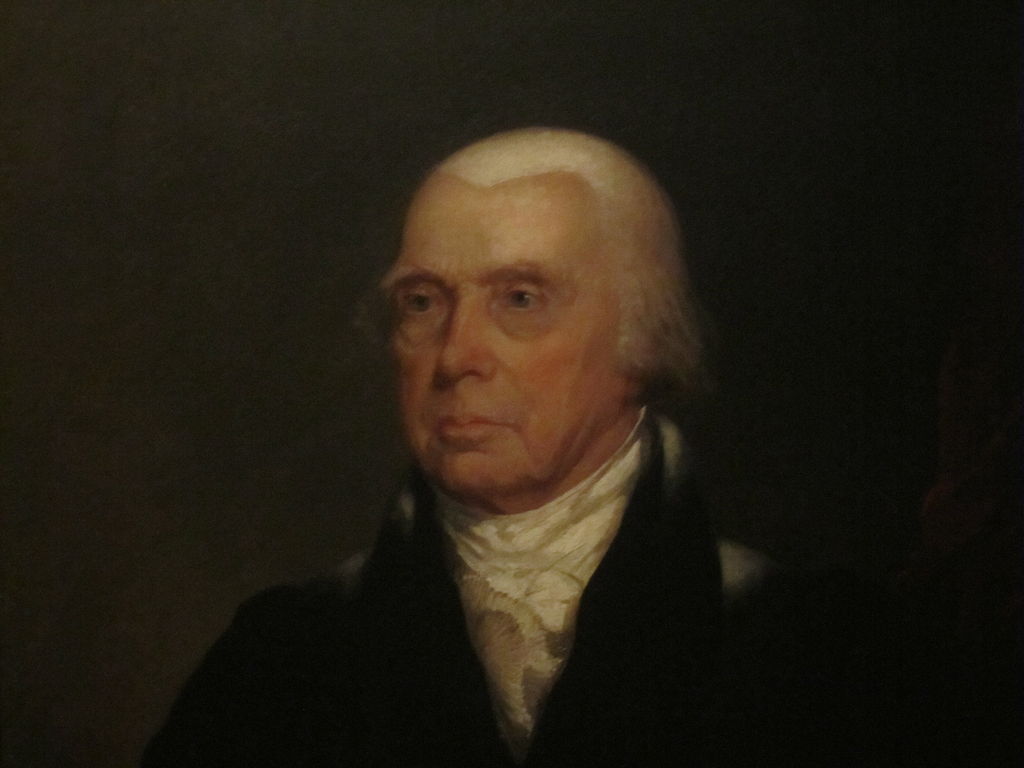What's So Great About the Declare War Clause? Noah Feldman's Madison & War Powers: Part III
The first two essays of this three-part series on Noah Feldman’s “The Three Lives of James Madison” discussed Madison’s theory of war powers and some of its failure or adaptation in practice. This last essay draws lessons for modern-day debates about war powers.

Published by The Lawfare Institute
in Cooperation With

The first two essays of this three-part series on Noah Feldman’s “The Three Lives of James Madison” discussed Madison’s theory of war powers and some of its failure or adaptation in practice. This last essay draws lessons for modern-day debates about war powers.
In particular, I argue that “congressionalists”—or those who hold that Congress must authorize any significant, hostile military intervention—often overstate the historical importance of the Declare War Clause and overvalue Madison’s arguments for that position. Indeed, many of today’s congressionalists are doing what Madison did when he was out of Congress and watching President Adams wage an undeclared war against France: falling back on formal text when constitutional structure wasn’t working as they would hope.
The Congressionalist View and Madisonian War Powers
I do not mean to suggest that the congressionalist view is singular and unified; there are variations of it, with different thresholds, standards, and normative justifications. And my intent here is not to litigate the entire debate between congressionalists and presidentialists, who hold that the president has vast unilateral power to use military force.
I do, however, think Feldman’s book helps to debunk some common myths that congressionalists often deploy. It also bolsters several arguments that Philip Bobbitt makes in his incisive review of John Hart Ely’s “War and Responsibility” (Michigan Law Review, 1994). Among Bobbitt’s most important points is that, yes, the framers intended war to be legislatively authorized, but that legislative authorization role is more complex and broader than the declare war clause. Moreover, if we take Congress’s other war-related powers seriously—in particular, its control over creating and equipping the military—we cannot just ignore the fact that Congress has affirmatively authorized a standing military force without putting restrictions on it.
Congressionalists sometimes begin by noting that the declare war clause—and, they argue by extension, the decision to initiate military conflicts—was among the most important power constitutional allocations decided by the framers. Louis Henkin asserted in his “Foreign Affairs and the U.S. Constitution” that “[t]o the Constitutional Fathers, one might guess, the most important power in foreign relations was the power to declare war.” In his account of the Framers’ allocation of powers in “The Imperial Presidency,” Arthur Schlesinger called the declare car clause “of prime importance.”
This is exaggerated and ahistorical, at least as to Madison. Of greater importance to Madison and his fellow Republicans were the Constitution’s allocation of and limitations on war-waging tools: congressionally checked spending on military instruments (the Army Clause) and reliance on state militias for military manpower (the militia clauses).
Returning, however, to the declare war clause, perhaps no quotation on war powers by Madison gets more attention than this one, discussed in the previous essay: “The Constitution supposes what the history of all governments demonstrates, that the executive is the branch of power most interested in war, and most prone to it. It has accordingly with studied care, vested the question of war in the legislature.” It is one of those statements so venerated by many lawyers because Madison said it; it must therefore be compelling.
There are many reasons to question the persuasiveness of that statement, however. As explained in the previous essay, Madison pens it during an episode—the Quasi-War with France during the John Adam administration—in which Congress had extensively deliberated and legislated about the military action, and the president’s strategy is best understood as intended to avoid full-scale war. More generally, given how wrong Madison turned out to be about the strategy of war-prevention and the wielding of war threats, the politics of going to war, and the defensive needs even of the early Republic in which he served, it is surprising that so much stock is placed on these words.
Declare War Clause as the Key Check?
In any event, congressionalists often take the view that the Constitution was and should designed to make it hard to initiate war. They interpret the declare war clause as a brake—or a second congressional key that must be turned—on initiating military conflict.
Elsewhere, from a strategic perspective, I have written about how this view vastly oversimplifies war-prevention. Empirically, political scientists have shown that even absent formal congressional declarations and authorizations of force, Congress still wields substantial influence over presidential decisions to use force. From a historical perspective, Feldman’s Madisons illustrate that if the Constitution was designed to make war difficult to initiate, the declare war clause was never expected to do all, or even a lot, of that work itself.
Feldman’s story ends with the erosion of other checks—most significantly the acceptance of a standing, national army, which gave presidents more unilateral freedom of action. This has ever since put a lot of strain on the declare war clause as a final check. It has also produced the illusion that the declare war clause is Congress’s key power—and a dangerously degraded one—rather than seeing Congress as continually exercising the other important war powers vested in the legislature. As Bobbitt describes it:
Recall now that Congress’s role in raising armies was, in the original contemplation of the Framers, by no means routine. The Framers did not anticipate that the United States would employ a large standing army, or that Congress would have to declare war before raising one. Funding armed forces was deemed to be of such significance that any decision to field an army had to be revisited every two years (1390).
Bobbitt continues:
What confuses us today is the presence of standing armies whose authorizations and appropriations have become more or less routine, even permanent parts of the statutory background. Thus members of Congress are inclined to feel they have authorized nothing—certainly not hostile action—when they have approved large, heavily armed forces whose only justification can be that they are prepared to fight (1390).
In other words, it is in part because other checks on presidential war-making no longer operate as originally envisioned that the declare war clause now seems of towering importance—it is, to many critics of imperial presidentialism, the last check standing.
But if the relative importance of the declare war clause over other war power checks has increased over time, a final lesson is that the stakes of that power allocation have changed dramatically since the founding era, too. It is usually assumed that the risks associated with war-initiation powers have increased because war itself has become so much more potentially destructive. But in other ways the stakes are much lower today than Madison assumed.
Madison was concerned, of course, with the foreign policy consequences of war, but Feldman’s book shows that his bigger concern was internal power balances. He was concerned about the centralizing effect of war on the instruments of government and war preparation as well as about the aggrandizement of executive power. But as the growth in standing U.S. military forces have enabled greater presidential discretion in U.S. security policy abroad, the growth of the federal administrative state, as well as expanded emergency powers independent of war, have also given the modern president levers of internal control unimaginable to Madison.
Put another way, Madison feared that presidents would be prone to war justify their accumulation of resources and power domestically; but modern presidents already have so much of that at their disposal. Sure, war is used to justify additional exceptional measures (such as expanded wartime detention or surveillance powers) and there may be other political reasons why presidents might find war advantageous. But a state of war no longer unlocks anywhere near the otherwise-sealed domestic presidential power that it might have before the modern administrative and national security state.
Conclusion
To be clear, my point here is not an outright defense of presidentialism, or that congressionalists are wrong to push for stronger legislative involvement in force authorization. I think Congress does not exercise its powers over war as much as it should. My point is, rather, to cast doubt on undue veneration for Founding Era statements, especially taken out of their historical and strategic context, and on a false formalism with regard to the declare war clause that many congressionalists would not apply to other provisions.
Feldman’s Madison is one who was prepared to acknowledge—eventually—that some of his war power principles needed to be adapted to experience and strategic reality. Those who revere Madison today ought to bring that same adaptive approach to interpreting constitutional war powers, including the declare war clause.




